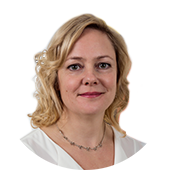
Every year, the EU produces more than 58 million tons of food waste. The key benefits of cutting down on waste are the reduction of environmental load and the economic benefits in terms of saving raw materials and human resources. NextGen, a project coordinated by the University of Vaasa, focuses on reducing food waste through machine learning and data.
The project uses a predictive model implemented by Pinja to study and reduce waste, with a focus on buffet catering, most recently at the Kuortane Olympic Training Center.
Data-driven decision-making and waste reduction can help catering providers save significant amounts of money each month – even relatively small providers can save thousands of euros.
The project will continue until 2025, and it will be extended to the hospitality sector in addition to schools. Waste has been monitored in the past in schools though projects such as Wasteless Food Services in Finland and PAJATSO, for which Pinja has also implemented user interfaces.
Reducing waste and mapping consumer habits with a predictive model
Food services account for a large share of food waste, and are therefore an important target for solving the problem. The NextGen project looks at waste generated during food preparation, as well as plate waste and leftover food waste.
Data plays an essential role in reducing waste, as it can be used to study consumers’ eating habits and predict the number of visitors. For the project, Pinja implemented a machine learning-based digital predictive model that automatically collects food waste data for review by restaurant and kitchen staff, among others.
The reviews covered data on both lunch and dinner habits. The collected data included:
- The number of customers
- Waste volumes, and
- Sales of different types of food and their impact on the amount of waste.
Kitchen and customer waste was measured using a smart scale. It also allows the customer to see the amount of waste when they throw biowaste in the bin.

Juha Vänskä, development manager at the University of Vaasa, praises the solutions implemented in the project. “It is invaluable for us to have a technology partner like Pinja, with whom we can develop waste solutions together”, he says.
Reducing waste up front brings a wide range of benefits
The Kuortane Olympic Training Center set a target to reduce food waste by at least 20%. The more data is available, the more accurate the forecast. So far, the results on waste reduction are promising, and data-driven waste prevention and related decision-making brings many benefits to food service providers.
The Microsoft Azure-based AI model implemented by Pinja provides data on visitor numbers, visitor eating habits, and waste generation to help better plan sales, menus, and portion sizes.
Data-driven decision-making and waste reduction can help catering providers save significant amounts of money each month – even relatively small providers can save thousands of euros. At the same time, visibility into waste amounts helps customers adjust portion sizes and reduce their carbon footprint.
Predictive models help adjust the work of service delivery, but permanent changes require adaptation from restaurants, as well as customers.
“We will publish all the source code related to the project so that it can be used by other companies”, Vänskä says. “We hope that as many providers as possible will be inspired to reduce waste by using different technologies”, he adds
Read more about the waste reduction solution of the University of Vaasa.
Read more:
Pinja's knowledge management services
Knowledge management – How to use data more effectively
Machine learning significantly improves the accuracy of business forecasts

Hanna Salonen
I am a knowledge utilization professional with twenty years of experience in the IT industry and knowledge-based management. The most important thing for me is that the goal set together with the customer is realized, the solution is long-lasting and easy and pleasant to use. My free time is spent e.g. with family, versatile exercise and nature.
Back to the Pinja Blog
Categories
- Career at Pinja (68)
- Manufacturing (46)
- Knowledge Management (45)
- Production Development (44)
- Software Partnership & Tools (42)
- Sustainability (37)
- Wood and Forestry (37)
- Bioenergy and Recycling (29)
- IT Support and Outsourcing (24)
- Ecommerce (23)
- Maintenance (22)
- Artificial Intelligence and Machine Learning (15)
- Public Services (9)
- Compliance (1)